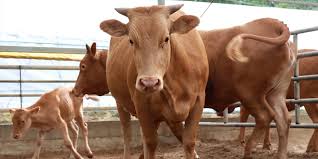Understanding the Import Ban
The Philippines has initiated a temporary ban on the importation of live cattle and buffalo, along with their products and by-products, sourced from France and Italy. This decision follows confirmed outbreaks of Lumpy Skin Disease (LSD) in both countries, which have raised significant health concerns for the livestock industry in the Philippines.
The Rationale Behind the Ban
Agriculture Secretary Francisco Tiu Laurel Jr. stated that the ban is a precautionary measure designed to protect the country’s livestock sector from the spread of LSD, a highly contagious viral illness that primarily afflicts cattle and water buffalo. The temporary restriction reflects a commitment to maintaining an effective safeguard against potential agricultural health threats.
- Live cattle and buffalo imports
- Products and by-products of cattle and buffalo
- Embryos and semen
Specific Exemptions from the Ban
Interestingly, not all related products fall under this import ban. The following items have been exempted:
- Salt-treated hides and ante- and post-mortem products
- Meal and flour derived from blood and meat (not skeletal muscle or bones)
- Casings, gelatin, collagen, tallow, hooves, and horns
- Pasteurized milk and milk products
International Context of Lumpy Skin Disease
Lumpy Skin Disease causes fever and distinctive skin nodules in infected animals. It is typically transmitted through blood-feeding insects such as flies, mosquitoes, and ticks. While the disease is rarely fatal, it can lead to decreased milk production and weight loss in affected animals, not to mention severe disruptions to trade.
The outbreaks reported in Italy and France are critical as they underscore the interconnectedness of global livestock health and trade. Italy’s outbreak was confirmed on July 18 in Orani, Nuoro, Sardegna, while France reported a similar situation in Chambéry on June 23, verified by veterinary authorities. The ramifications of these health issues reach far beyond national borders, affecting international logistics and commerce.
Compliance with International Standards
The Philippine Department of Agriculture’s decision aligns with international animal health standards established by the World Organization for Animal Health. This compliance reflects a dedication to maintaining high veterinary health standards, which are essential for facilitating safe trade and preventing the spread of diseases across borders.
Expected Duration of the Ban
The import restrictions will remain in effect until further notice, pending the development of effective containment and eradication strategies in the impacted countries. This not only affects individuals involved in livestock farming but also has a ripple effect on logistics and supply chains that rely on the movement of these goods.
Logistical Implications of the Ban
With the ban on imports, several critical logistics factors come into play. Firstly, there will be a noticeable impact on the transportation of livestock-related goods from both France and Italy to the Philippines. Cargo carriers, freight forwarders, and logistics providers must recalibrate their routes and shipping schedules to avoid this now-restricted trade segment.
Impact on Domestic Logistics
Domestic logistics and distribution channels may also experience shifts as local suppliers seek to fill the gap created by the import ban. This can lead to an increase in demand for locally sourced livestock products, requiring effective distribution strategies to ensure availability.
- Adjustments in shipping routes
- Changes in domestic demand for livestock products
- Reallocation of resources among logistics providers
Sintesi e conclusioni
Ultimately, the temporary import ban imposed by the Philippines on cattle and buffalo from France and Italy raises significant questions regarding the landscape of international trade and logistics. This measure serves as an essential safeguard against the spread of Lumpy Skin Disease while reaffirming the country’s compliance with international health standards.
Even though this ban may not seem to have global consequences, its local implications highlight the importance of reliable logistics solutions. As logistics providers, including platforms like GetTransport.com, strive to stay updated on regulatory changes, they also facilitate smooth transportation processes. Offering a spectrum of transportation solutions—affordable, flexible, and comprehensive—GetTransport.com efficiently services diverse logistics needs, from home and office moves to bulky goods deliveries. As the industry evolves in response to these changes, staying informed about such developments ensures that logistics partners can plan accordingly.
The logistics sector is deeply intertwined with the ongoing health issues plaguing livestock. Even the most thorough reviews and insights cannot replace personal experiences when navigating such crises. With GetTransport.com, accessing reliable transportation for cargo becomes effortless and budget-friendly, empowering clients to make informed decisions about their logistical operations without breaking the bank. This is where transparency, affordability, and convenience come into play, ensuring a seamless experience. Prenota il tuo viaggio.

 Philippines Imposes Import Ban on Cattle and Buffalo Products from France and Italy">
Philippines Imposes Import Ban on Cattle and Buffalo Products from France and Italy">